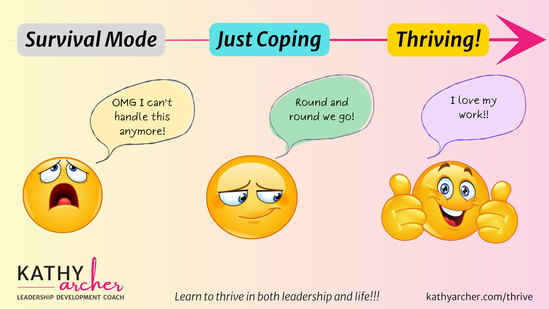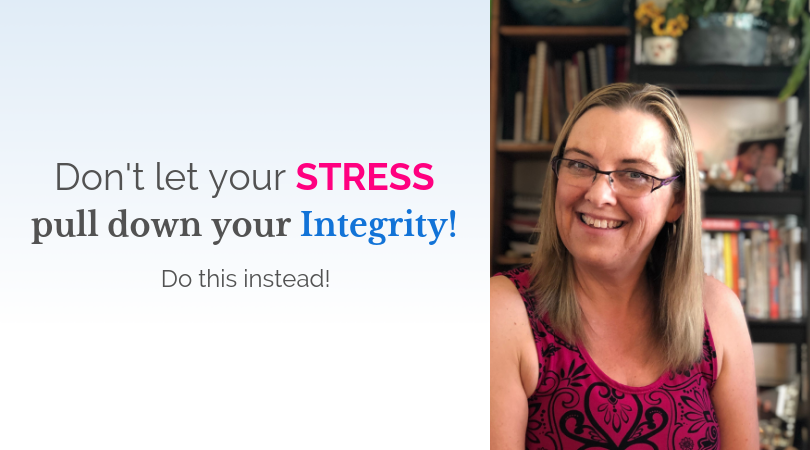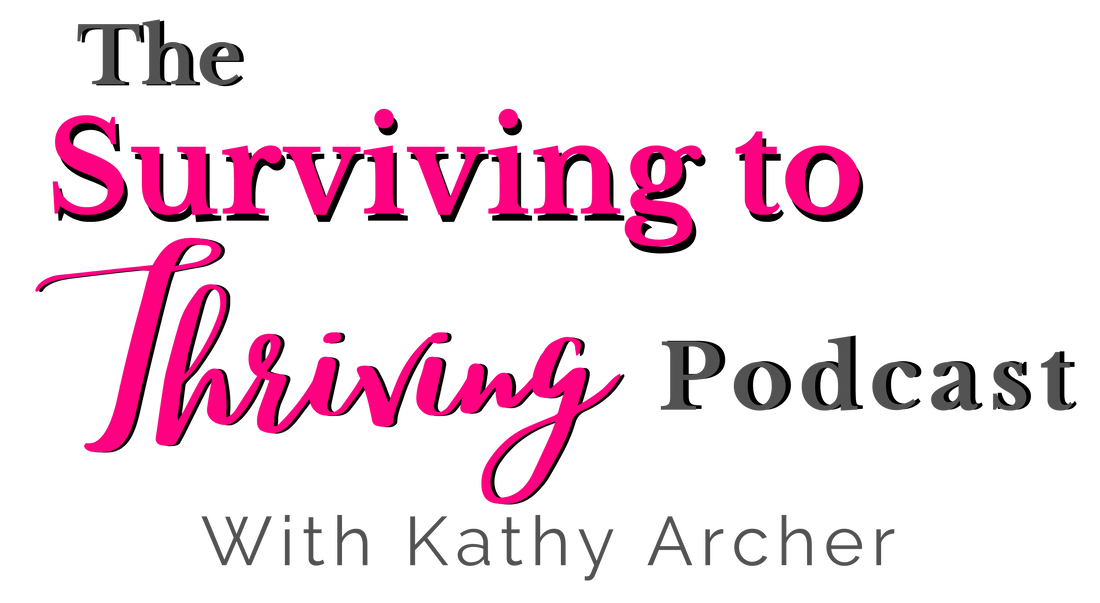Nonprofit Women Leaders Do Not Have To Stay Stuck In Survival Mode
As a woman leading in a nonprofit many of these thoughts may go through your head daily:
These phrases are all signs you might be stuck in survival mode as you lead, manage or supervise your nonprofit team.
If you are all too familiar with these phrases and want to change that, keep reading. I am going to show you how to move from just surviving to thriving in both leadership and life! Understanding The Surviving to Thriving Continuum for Nonprofit Leaders
Sadly, far too many women leader in nonprofits regularly recite similar lines like "Just get me through today!" Regardless of the version, each of these mantras is a red flag signalling that you might be in survival mode. We've all been there at some point or another.
Survival mode becomes a problem when you live there, rather than visit there. There will always be busy times. Leaders are constantly involved in the ebb and flow of new projects, the shifts of contractual expectations, annual budget cycles, performance reviews, grant proposals or contract renewals. It's the job. There is no way around it. But as you begin to learn how to ditch survival mode, I am not talking so much about work itself. Instead, I am focusing on your attitude towards the work, how you balance your workload, and how the work impacts you and your relationship with your work. How that all affects you falls on a continuum. So let's first look at opposite ends of the spectrum. The Left Side of the Continuum: Survival Mode
Survival mode is characterized by fear. You are always afraid of falling apart, dropping the ball or losing it emotionally. You are barely hanging on, just getting by or just trying to stay alive.
Those in survival mode tend to feel isolated and alone. It doesn't feel like anyone cares about you or that you have anyone on your team. It often seems like "they" are out to get you. When I was in survival mode, I honestly hated a few people and loathed a couple of others. I always felt like they were ready to throw me under the bus! This end of the spectrum, survival, is marked by crisis management, putting out fires and only day-to-day sustainability. Lord knows you can't last like this forever. Burnout is knocking on your door. The Right Side of the Continuum: Thriving
On the right end of the continuum, the thriving mode is characterized by passion. You bloom and flourish as you learn new things and take on engaging projects. To many, it is an adventure with a purpose. You are blooming and flourishing as you learn new things and take on engaging projects.
Those in thriving mode tend to feel confident, courageous and resilient. It isn't that people at this end of the continuum don't encounter challenges; the difference is that they are confident they can handle challenges. When I moved into the thriving mode, I was eager to go to work, felt like I was doing meaningful work and could say I was stretched, but not to the point of snapping. This end of the spectrum, thriving, is marked by feelings of being engaged, supported and connected. Leaders in thriving mode feel like they belong to a broader community of support and feel they are making a positive impact through their work. It's usually not black or white
Rarely are any of us entirely at one end of the spectrum. We are likely at some point in between. We ebb and flow daily. Depending on where you are, whom you interact with, and the day's agenda, you can shoot from one end of the continuum to the other quickly. As such, most of us sit somewhere along the surviving to thriving continuum, moving around various points in the middle.
The Middle of the Continuum: Coping Mode
In the center of the surviving to thriving continuum is what I call coping mode. You are doing more than barely getting by, but you're not feeling so alive that you want to yell from the mountaintops about how much you love your job. Instead, you go to work and have some good days, lots of so-so days and a few insane days.
Some leaders are bored in the middle. There is no challenge, no pull or drive to use your skills and talents fully. Often it's a sign you have been in the same position for longer than you should have been.
When I was in coping mode, I felt emotionally flatlined. I didn't feel a lot of excitement or joy. Instead, it felt more like I was running around the same hamster wheel day after day. I had a few friends to connect with that would let me vent, but not enough support to move the needle forward. Coping mode ranges from short-term stability, meaning you could go on like this for a few months, to a way of life. Sadly, many women leaders believe this is just the way it is, and they don't think they can change it. So instead of a period before things move one way or the other, leaders stay in coping mode for most of their careers. 3 Steps to Move you from Surviving to Thriving as a Nonprofit Leader
How can you, the nonprofit leader move from survival to thriving as you lead? The truth is you can move from surviving to coping to thriving at work and in life. You have a choice. You do not have to stay stuck in your current mode forever. For you to move forward along the continuum, there are three key things you need to do.
1) Recognize where you are on the continuum
Grab the guide to get you out of survival mode. Use it to assess where you land regularly. Awareness is always the first step to change. Seeing it in "black and white" can sometimes provide the catalyst you need to make some changes.
Also, notice where or when you tend to slip into survival mode. Is it a particular time of year?
Do you want to know where you land on the Surviving to Thriving Continuum?
2) Get clear on where you want to be - Your target
Change takes time and effort. You will need to be intentional about making the change. To help you, create goals that you are aiming for. I call this your Thriving Target!
Thriving is growing and being challenged in a good way. It is about doing meaningful work yet maintaining balance. You will need to get clear on what that looks like specifically for you. 3) Create a plan to move you from surviving to thriving
To move to the right and thrive, you must create new habits. Your current habits are keeping you stuck. You've likely been sitting at the edge of survival mode for quite a while. You know it well. It's become a way of life. You have developed damaging habits to cope with lack of sleep, missed meals, and limited time for yourself and your family. You know how to get the critical things done with a hectic schedule at the office and have a system in place for ensuring you meet everyone's basic needs, but not much more. You habitually put off reading that book, taking that personal development course or going to that training you are passionate about because it's just not that important. Oh, but my dear, it is!!! You are worth it. To thrive at work and in life, you must create new habits around self-care, self-reflection and self-improvement.
Do you want to know where you land on the Surviving to Thriving Continuum?
Be gentle but persistent as you develop new habits to move towards thriving in leadership and life
This is going to take time and effort. But please don't think you have to do it all alone! I'm on your team. Each week I teach you the daily steps you need to take and the mindset shifts you need to make to increase your competence, feel more confident and THRIVE in leadership and life!
2 Comments
Have you ever avoided a tough conversation, that you know you should have? We all have. Unfortunately, when we don't deal with them, they tend to fester and problems get worse. Keep reading to learn how to create a plan to get you through "that" conversation in a way that feels authentic and confident! Let me start with a story: I have a decision to make today…..ok…let me rephrase that. I’ve made a decision, now I need to communicate it to someone, and I’m not looking forward to it.
❓️Can you relate❓️ Do you have a conversation you need to have with someone and are dreading it? 😩 Having tough conversations takes discipline. You need the self-control to do it, even when your inner self is screaming:
Your inner voice keeps you small! To shush that nattering voice that keeps you lacking the courage to deal with the thing with integrity you need willpower. Willpower is that inner will that will tell all that negativity to be quiet so you can awaken that courageous you that is hiding quietly in the background. Having a tough conversation takes willpower! And here’s the truth: You need to strengthen your willpower so you can handle that tough conversation and get done what matters most!💪 Here's how willpower & tough conversations fit together Let look at the components of willpower as they relate to difficult conversations. Willpower is the ability to: 💥manage your thoughts. 💥manage your emotions. 💥resist urges and distractions 💥focus on what matters most! Imagine being a leader who can keep your thoughts and emotions in check and handle a tough conversation with courage, confidence and integrity!!!🙌 Let's back up a moment Imagine the next tough talk that you have coming up.
My guess is several things could come into play.
Now, let's look at how your willpower, or lack of willpower may come into play. When you think about how you define it as a tough conversation, consider: 🔹What thoughts come up for you? 🔹What emotions are connected to those thoughts? 🔹Where might you allow yourself to be distracted? 🔹What urges do you have about that meeting? 🔹What will be important about focusing during that talk? 👉️Thoughts, feelings, resisting urges and distraction and focusing, all of the components of willpower are all going to play a role in that tough conversation. It will be your inner discipline or willpower that will help you stay engaged in a conversation when you don’t feel like it; You need a plan!!!! 👇️Here's how: The best way to stay authentically and courageously in that uncomfortable conversation is to pre-plan. You need to know ahead of time:
You, my dear, need to have a plan to use your willpower wisely. ✏️Here’s your homework. Identify the next difficult, tough or challenging conversation you have.
🆘Need help? Members of The Training Library can find this WEBINAR: How to prepare for a tough talk so you can handle it with integrity to help you plan your way to confidence! Hey my dear, What do these examples have in common with you?
Have you hit a bump? The truth is, while sometimes things roll along smoothly, we often hit a bump as leaders, and that bump creates a small or a big, mess in our lives.
How are you approaching your bump? How you get through each of those situations, defines the future of your leadership journey. ✅Your style of communication ✅The resources you reach for ✅The strategies you use to grow The type of person and leader you become are shaped by how you approach each bump along the way. Can you learn anything from how we approached our bumps? Each of us approached our bumps in our own ways.
This is how our approaches shaped us. Do they sound outcomes you want? How each of us approached our bump, has shaped the type of leader we are today.
The question for you today is: What’s your current bump and what’s your approach to dealing with it?
⚠️Leadership is a hard journey⚠️ I don’t want you to go through it alone, in fact... You should NOT have to go through leadership feeling alone and isolated! ❣️You should have friends, mentors, resources and coaches! ❣️You should have a shoulder to cry on and someone to kick your butt into gear when you need to take responsibility for the change. Don't do this! I've coached and mentored hundreds of women and what I see often is this:
Struggle and doubt are part of the leadership journey. Leadership will have tough days. Period. There will be many amazing, insightful, exciting and enjoyable days too. But there will be tough days. It’s how you deal with the tough days, that will shape your leadership character! Create your pit crew: Your pit crew is a list of people that, when you hit a bump, will be there on the side of the road for you!
️DO THIS: Make a list of those people that you can call lean on, or ask for help when you need them.
Hint: It doesn’t need to be a real call. I have on my list, people I’ve taken virtual training with. When I hit a block, I’ll say to myself: What would Simon, Brene, Brian, Joni, Amy, or the Kathy I’m becoming tell me to do? Leadership is full of difficult meetings, tough conversations and challenging moments. But you’ve got this, my dear. You can do this. It just takes a little help from your friends - AKA your pit crew. Kathy Not yet a member of The Training Library? Find out if it's right for you here. Would you like to feel confident that you will be able to maintain your composure in your next meeting or conversation? If you are like most leaders... You have a tough conversation or meeting coming up.
But what you deeply desire is to feel composed. You want to walk away feeling like you didn’t get your panties in a knot; unruffled and clearheaded. What gets in the way of that: Unmanaged thoughts and emotions. That’s the bottom line. When you feel flustered in a meeting when your nerves get the better of you, and you feel anything but composed, it’s because your thoughts and emotions have gone crazy. Your thoughts and emotions are in control of you instead of you being in control of them 🥴
I felt that way too! I know, me too! I spent years worried I was not in control. That left me feeling incompetent, afraid and wondering if I was cut out for a leadership role. Over time, I learned how to regain that feeling of being in control. Being in control of my thoughts and emotions gave me the courage, confidence to lead. Let me show you how, so you can lead your amazing team and make the difference your org can make! So, what exactly is composure? Being composed is when you are in control; in control of your thoughts, emotions and behaviour. Being composed is feeling calm, confident and in control! How do you get more composure? You get control of your thoughts and emotions by training your brain, which will help you become Emotionally Intelligent. 🔸Emotional Intelligence is being able to both recognize and manage your thoughts and your emotions. Training your brain, your thoughts and the subsequent emotions requires willpower. Willpower, or lack of it, will either give you a sense of composure or leave you feeling anything but composed in tough conversations. If you want to find yourself feeling calm, confident & in control in your next meeting, learn to develop your strength of will. 🦉Daniel Goleman defines willpower this way: "Willpower is the ability to consciously regulate what you feel and what you do". Think of any strong, competent and composed leader you know, and I bet they can regulate themselves! The good new is you can also learn to regulate you what think, feel and what you do too! If you want to become a more composed leader, grow your willpower! Ongoing training to grow women leaders in 🇨🇦 Canada's Nonprofit Organizations. Not a member of The Training Library yet? Join for $19.97 and enjoy a monthly webinar plus a library of courses to support your ongoing personal and professional development that is affordable and easily accessible! Discover the details here What if I told you that your ability to lead with integrity is only as good as the management of your stress? It's true! Consider these questions:
I'm guessing you'd say no to those questions. However, if you are like most leaders self-care, wellness and your health are often put on the side while you put out fires, juggle crisis and focus on just surviving this meeting, just getting through today, or coping with this busy time. Keep reading to learn how you can gain the trust of your team and have them judge you as being a leader with integrity. Leading with Integrity Remember, the #1 thing people are looking for from their leaders is integrity. They want to know that they can trust their leaders. They want to be able to TRUST YOU!
Stress and Integrity When our bodies are under incredible stress, which is pretty much every leader, our bodies shut down many of their functions. Things like empathy, compassion and strategic thinking go out the window. Stress causes us to have tunnel vision, focusing only on the tiger in front of us and not the tribe around us. Stress causes us to be nearsighted.
Nope. It's not possible. What you will be, instead, is what I was when I was overwhelmed with the responsibilities of leadership and not taking care of myself; Bitchy, grumpy, exhausted and anything but motivating, inspiring and in integrity! Do this: Take care of yourself, my dear. You must! To be a great leader, who leads with integrity, you need to get solid sleep, eat healthily, move your body, restore your spirit and learn to use your breath to calm your body, mind and soul. It's when you practice self-care, not just at the end of the day, but throughout your work day, that you'll find you can lead with integrity Living and leading with integrity takes some time and effort on your part. You need to get clear on what you believe, what your values are, and what hill's you'll die on. You'll never do that work to get that clarity when you are just barely getting through your days! Ongoing training to grow women leaders in 🇨🇦 Canada's Nonprofit Organizations. Not a member of The Training Library yet? Join for $19.97 and enjoy a monthly webinar plus a library of courses to support your ongoing personal and professional development that is affordable and easily accessible! Discover the details here |

Available on Amazon
Archives
May 2024
|
|
Leadership TRAINING for Nonprofit Leaders
Become a confident and competent nonprofit Leader: Join The Training Library membership Executive and Leadership COACHING Leadership Coaching for Nonprofit Executives, Leaders and ManagerCoaching |
PODCAST for Nonprofit Leaders
The Surviving to Thriving podcast: Strategies, systems and support to lead your nonprofit with confidence FREE RESOURCES to Grow your Leadership Skills Free Leadership Training Resources, Worksheets and Templates |
Become a CONFIDENT LEADER
|










 RSS Feed
RSS Feed
